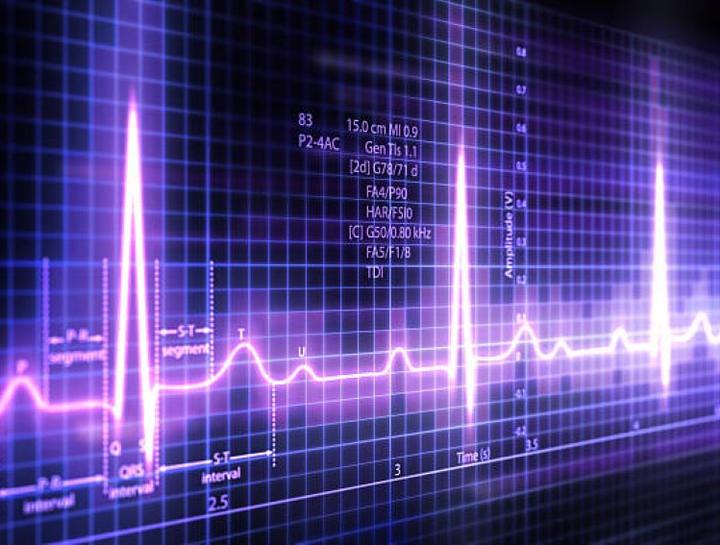Electrocardiography
A critical tool in the diagnosis and management of cardiac issues.
Electrocardiogram in Dogs and Cats
What is an electrocardiogram?
An electrocardiogram (ECG) is a test that is commonly used to assess the heart. Your pet’s heart beats because of an electrical impulse passing through the heart causing it to contract and pump blood. This impulse passes through the heart in a predictable manner that can be traced on an ECG recording.
By analyzing the electrical impulses passing through the heart, abnormalities within the heart can be found. These abnormalities may include issues such as arrhythmias (irregular heartbeats), abnormalities in the size and structure of the various heart chambers, abnormal conduction, and other defects of the heart.
How is an electrocardiogram performed?
In most cases, an ECG can be performed in your veterinarian's office as an outpatient visit. No special preparation is typically required for this procedure.
What information can be gained from an electrocardiogram?
An ECG can provide your veterinarian with a variety of information about your dog's heart function.
-
Is the heart rate normal? An ECG allows an accurate determination of your pet's heart rate. This can reveal whether his heart is beating at a normal pace, or beating too quickly or too slowly. An elevated or decreased heart rate can suggest medical issues that may warrant investigation.
-
Is the heart rhythm normal? An ECG provides a very accurate way for your veterinarian to assess your pet's heart rhythm. If his heart rhythm is abnormal, analysis of the ECG results can diagnose the exact arrhythmia that is present and suggest likely underlying causes for this arrhythmia.
-
Does the pet's heart size appear to be normal? An ECG measures electrical conduction through the heart. Enlarged heart tissue conducts electricity differently than normal heart tissue; therefore, an ECG can sometimes suggest abnormalities in the size of specific heart chambers. While this determination is not completely accurate or reliable, it can suggest the need for further investigation via radiographs (X-rays) or echocardiography (an ultrasound of the heart).
To learn more about our ECGs or to schedule your pet’s consultation, call us at (201) 825-4545 or request an appointment online.

